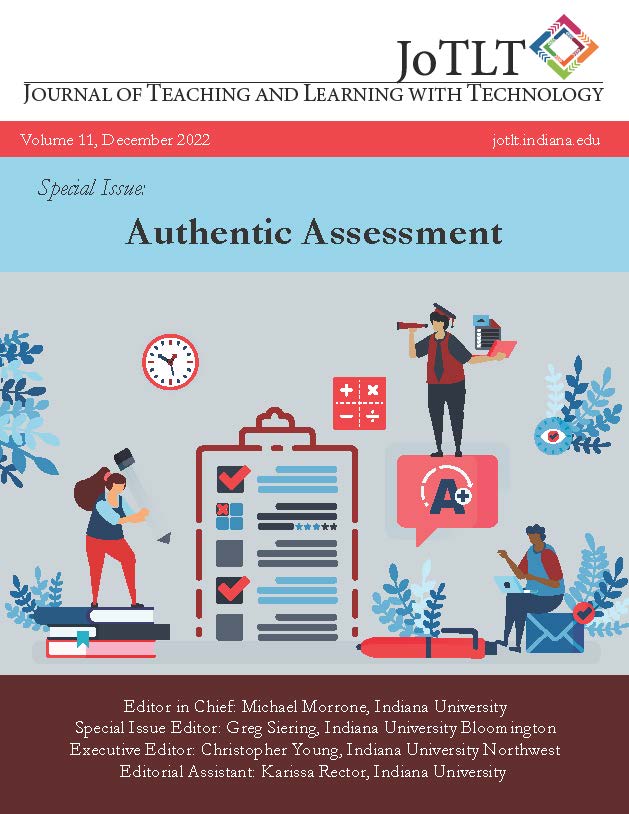Using Google Docs to Administer Synchronous Collaborative Assessments
Main Article Content
Abstract
Collaborative learning increases student achievement of learning outcomes in a wide range of disciplines, including the natural sciences, and is a hallmark of authentic assessment. To help students collaborate more effectively, I have used Google Docs, a free, online word-processing program accessible using almost any internet-connected device. Assessments that include real-world application problems are composed in Google Docs and shared with students via links. Google Docs has proven to be more efficient than pencil-and-paper assessment, encourages greater collaboration within student groups than is possible with tools embedded in a learning management system, and provides opportunities to give students just-in-time instruction and examine student metacognition, all of which are foundational for authentic assessment. Post-assessment grading is rapid, and corrected documents with instructor feedback can be easily shared with students. Students have adapted readily to the platform and have learned on their own how to use the software beyond my original conception. I describe how I have used Google Docs successfully in a molecular biology course, offer considerations for grading and distributing corrections, and report on students’ perceptions of the assessments themselves.
Downloads
Article Details
- Authors retain copyright and grant the Journal of Teaching and Learning with Technology (JoTLT) right of first publication with the work simultaneously licensed under a Creative Commons Attribution License, (CC-BY) 4.0 International, allowing others to share the work with proper acknowledgement and citation of the work's authorship and initial publication in JoTLT.
- Authors are able to enter separate, additional contractual agreements for the non-exclusive distribution of the journal's published version of the work (e.g., post it to an institutional repository or publish it in a book), with an acknowledgement of its initial publication in JoTLT.
- In pursuit of manuscripts of the highest quality, multiple opportunities for mentoring, and greater reach and citation of JoTLT publications, JoTLT encourages authors to share their drafts to seek feedback from relevant communities unless the manuscript is already under review or in the publication queue after being accepted. In other words, to be eligible for publication in JoTLT, manuscripts should not be shared publicly (e.g., online), while under review (after being initially submitted, or after being revised and resubmitted for reconsideration), or upon notice of acceptance and before publication. Once published, authors are strongly encouraged to share the published version widely, with an acknowledgement of its initial publication in JoTLT.
